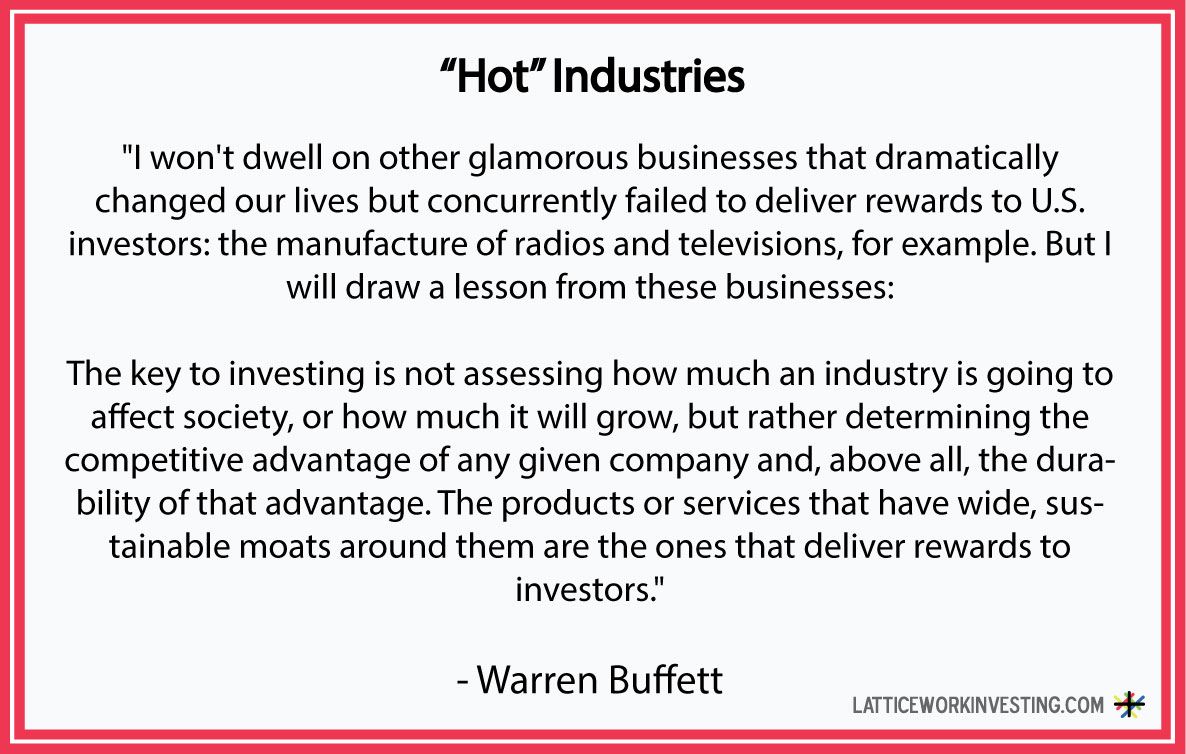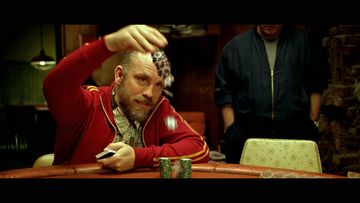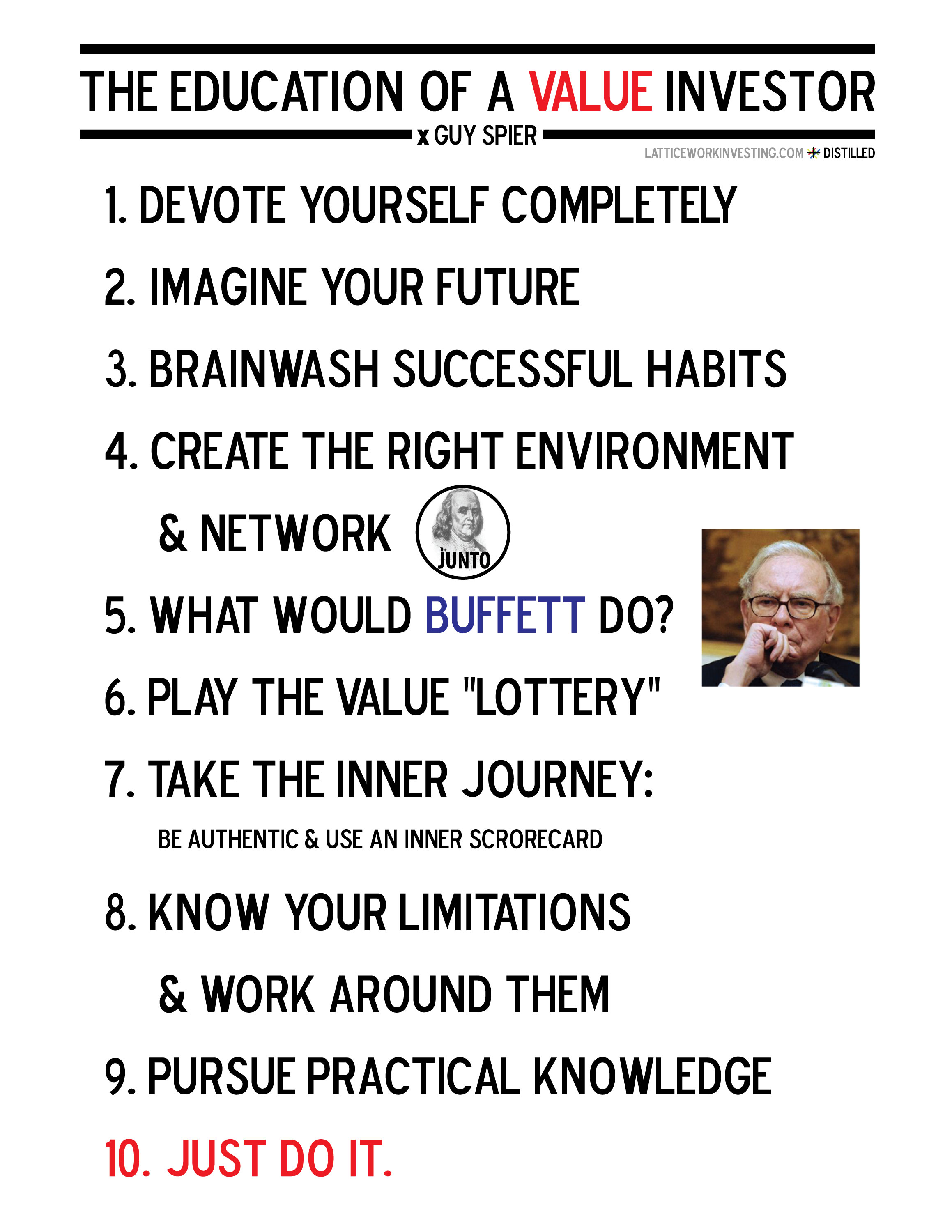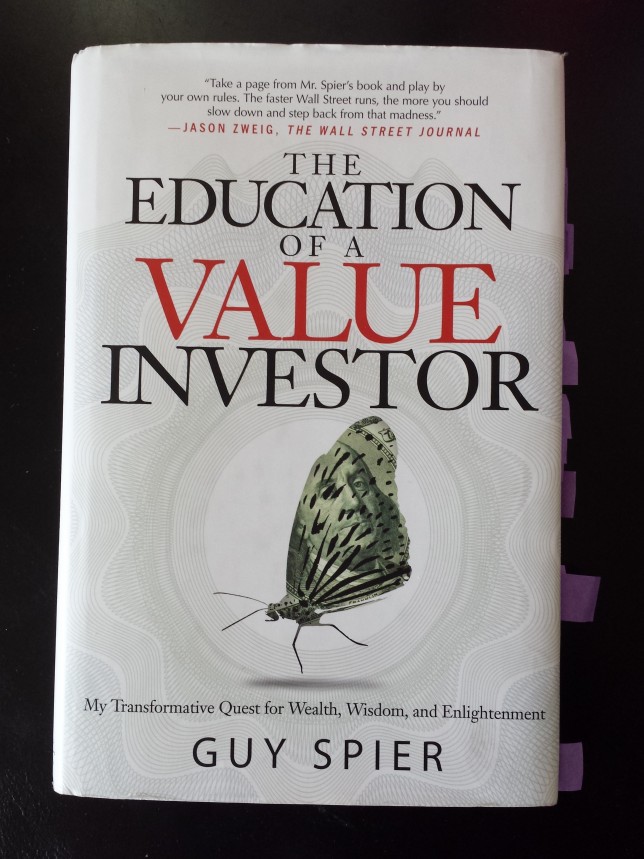My full notes and analysis from the past week: September 17-23, 2017. Periodicals covered in this Wall Street Recap include the WSJ, FT, NYT, and LA Times.
Investing in “Hot” Industries
“A lot of the places where the industries are doing a great job for the world, it’s very hard to make money out of it. Because these wild enthusiasms come into it. I don’t have a favorite industry.” – Charlie Munger
In the depths of the ocean, the glow from a small lure stands out among the darkness. Fish from the surrounding waters swim toward the lure, tempted with the promise of a free lunch. Little do they realize that they are swimming right into the jaws of an angler fish and their impending doom.
Likewise, “Hot” industries have historically acted like an angler fish, attracting investors who unwittingly swim into the jaws of poor investment returns. Think back to the hot industries in history such as autos, airlines, and dotcoms. The lure of those industries was typified by two compelling elements;
- A story of a world-changing product or service,
- Stellar growth wrapped around massive consumer demand.
Even though those industries had favorable long-term tail-winds, industry returns were abysmal and left thousands of bankrupt companies in its wake. Why?
Two key reasons:
- Durable Moats are Illusive: “Hot” industries are defined by growth and rapid change. This constantly evolving environment makes it incredibly hard to predict winners and losers. The best product or service today may become obsolete tomorrow. And a perceived competitive advantage today may vanish overnight.
- Wild Enthusiasm Attracts Too Much Capital: Wild enthusiasm attracts massive amounts of capital into hot industries. This in turn increases competitive pressures and drives down the returns on invested capital.
Examples of “hot” industries from the last century:
Autos: “Autos had an enormous impact on America, but in the opposite direction on investors.”…”of the two thousand companies, as of a few years ago, only three car companies survived. And, at one time or the other, all three were selling for less than book value which is the amount of money that had been put into the companies and left there.” – Warren Buffett (link)
Airlines: “Here’s a list of 129 airlines that in the past 20 years filed for bankruptcy. Continental was smart enough to make that list twice. As of 1992, in fact–though the picture would have improved since then–the money that had been made since the dawn of aviation by all of this country’s airline companies was zero. Absolutely zero.” – Warren Buffett
Nifty-Fifty Tech Stocks: A study found that the compounded annual return of the Nifty-Fifty portfolio from the peak in 1972 to 1998 was actually quite admirable, 12.5%. The study also found that the Technology stocks in the Nifty-Fifty were significantly over-valued at the peak, and, as a result, performed poorly over the 26 year period. On the other hand, predictable and “boring” consumer staples stocks like Gillette, Phillip Morris, and Coca-Cola all performed well, and, in hindsight, were still undervalued at the peak of the investment craze. (link)
Mental Model: Viscosity
Viscosity: the state of being thick, sticky, and semifluid in consistency, due to internal friction. Liquids show a reduction in viscosity (stickiness) with increasing temperature. (link)
Hot industries are like a fluid with low viscosity. They are fluid, in a state of change, and have little resistance to deformation by (industry) stress. All of which make them hard to predict.
Meanwhile, industries and businesses that are highly viscous are “sticky”. Their future can be predicted with reasonable confidence.
As a fluid increases in temperature, its viscosity decreases (i.e. becomes less sticky). Applying that model to investing, as an industry becomes “hot”, it becomes more fluid and less predictable.
This has implications regarding the usefulness of a company’s historical financials. As an industry’s “temperature” increases (i.e. becomes more fluid and subject to change), a company’s historical figures may no longer be an accurate representation of its future performance. Using a company’s historical financials in this new environment invites error and potential over-valuation. (Or under-valuation if the reverse is true; low viscosity moving to high viscosity)
Investment Lessons:
Avoid “Hot” Industries: Subject to intense competition and an ever shifting environment, it is challenging if not impossible to predict winners and losers in a hot industry.
“We make no attempt to pick the few winners that will emerge from an ocean of unproven enterprises. We’re not smart enough to do that, and we know it.” – Warren Buffett
Invest in Sticky “Predictable” Businesses: Investing in sticky businesses follows Buffett’s prescription of not fooling yourself and not losing money.
“…we try to apply Aesop’s 2,600-year-old equation to opportunities in which we have reasonable confidence as to how many birds are in the bush and when they will emerge.” – Warren Buffett
“Hot” Industries: In the News
Netflix, Tesla, and Blue Apron are the hottest companies in hottest industries. Each one is contending with wild enthusiasm and a flood of investment capital. Some of the most recent developments threatening these companies are listed below.
Netflix
“Facebook Inc. is loosening its purse strings in its drive to become a major hub for video. The social-media giant is willing to spend as much as $1 billion to cultivate original shows for its platform,” (link)
“It also signals Facebook’s readiness to spend more than before to become what Chief Executive Mark Zuckerberg calls a ‘video-first’ platform.”
HBO, Amazon, Netflix, Facebook, and Apple are all “banking on video to capture the fleeting attention of users and seize billions of dollars in advertising that is expected to migrate from television to digital video.”
Apple
“Apple Inc. is preparing its own billion-dollar war chest for content.”
Disney
“For Netflix, Disney’s decision to hold on to rights to ‘Star Wars’ and Marvel movies will add to the pressure to create appealing original content of its own to replace some of the high-profile franchise films Netflix will lose starting in 2019.” (link)
“The big problem is not aggregate costs, but costs versus competitors. If your costs are out of line, you’re going to get killed eventually.” – Charlie Munger
Tesla
VW
” VW, the world’s biggest carmaker, says it will build 50 all-electric models by 2025 and electrify 300 models by 2030.”
“The speed of the shift is remarkable…The switch is driven by policy: “European regulators were previously content to set environmental standards and let manufacturers decide how to meet them. Since the emissions cheating scandal, they are quite reasonably inclined to be more prescriptive…This is prompting a rapid change in consumer behavior: few people will risk buying a car that may be of limited use within a decade.”
Mercedes, Smart, BMW
“Daimler boss Dieter Zetsche said the Mercedes owner’s ‘entire portfolio’ will be electrified by 2022. The Smart brand will become fully electric by 2020, making it the first internal comustion engine marque to make the switch.”
“BMW told reporters at the show: ‘Our top priority now as a company is electric mobility.'”
Nissan-Renault-Mitsubishi alliance
“The chairman and chief executive officer of the Nissan-Renault-Mitsubishi alliance is pushing ambitious targets for the auto makers in an effort to leapfrog Silicon Valley and swipe market share, even as some of his biggest rivals look to scale back.” (link)
“He is also planning 12 new electric cars, forays into robotaxi fleets and the debut of a fully autonomous car within six years.”
“With the explosion of technology that is coming, it is going to make it very difficult for smaller players to follow. Mr. Ghosn said. “You’re going to have a premium for the large car manufacturers because we are the only one who are going to be able to invest in all the fields, all the products, all the markets, all the technology without making any shortcuts or without having any blind spot.”
Blue Apron
Albertsons
“Albertsons Cos. is buying the Plated meal-kit service, the first acquisition of a prepared-meals company by a national grocery chain as supermarkets scramble to keep shoppers coming to their stores.” (link)
Bob Miller, chief executive of Boise, Idaho-based Albertsons, said in an interview Wednesday: “We think there’s an opportunity to grow this thing tremendously,” adding that the supermarket will give Plated a “cost advantage” over other meal-kit companies by the scale of its food purchasing and network of 18 manufacturing plants.
“The worst sort of business is one that grows rapidly, requires significant capital to engender the growth, and then earns little or no money.” – Warren Buffett
Psychology of Human Misjudgment
Confirmation Bias
Anti-Soros conspiracies sweep the globe (link)
“Conspiracy theorists have an explanation for everything. So the fact that the Financial Times should publish a column defending Mr. Soros will simply be taken as further evidence of his nefarious influence.“
Deprival Super-Reaction Syndrome
Along with the migrating steelhead, Oregon river pool holds life lessons (link)
“He recalls watching a man catch a wild steelhead. The man was furious because by law, he could keep a marked hatchery fish, but had to throw back a wild fish. He tore the fish’s mouth and bashed it against a rock.”
“‘As a species, we can be unbelievably kind on an individual basis – a person will give you the shirt off their back on the trail. But start creating vested interests and people can be unbelievably brutal.‘”
Over-Influence by Authority
Shortcomings in Tesla’s self-driving tech cited among factors in fatal crash (link)
“Joshua Brown, a Tesla owner, was killed last year when his car ran into the side of a truck that was turning across the roadway in front of it.”
“He said Brown had put a higher level of trust in the Autopilot system than was intended and that the driverless technology had not been designed to operate on the road where the crash occurred…Brown had his hands on the steering wheel for only 25 seconds during the 37 minutes leading up to the crash.”
Say-Something Syndrome
Instragram video of weapons leads to an arrest (link)
“A Texas gang member suspected of violent robberies, home invasions and murder, was captured by the LAPD after…he posted a video of himself on Instragram displaying a gun collection,”
Forgetting what one is really trying to do
What started out as a plan to reduce the pigeon population in Lisbon, has turned into a mission to provide “dignity and quality of life” to pigeons.
Lisbon Has Too Many Pigeons, So It Built Them a Luxury Resort (link)
“Since the birdhouse opened…its mission has crept beyond mere population control. Caretakers have equipped the facility, which costs 250 euros per month to maintain, with a pigeon first-aid station, and there’s talk of offering services such as deworming and, paradoxically, a nursery….’Pigeons deserve and need dignity and quality of life,’ she says”
“A majority of life’s errors are caused by forgetting what one is really trying to do.” – Charlie Munger
Simple Psychological Denial
Ex-Pakistan PM’s wife wins Lahore by-election (link)
The Panama Papers “revealed documents detailing (Mr. Sharif’s) offshore accounts, and show his family owned assets he could not account for…This was followed by the supreme court’s ruling that his unexplained wealth made him unfit for office.”
“But many of Mr. Sharif’s supporters believe the guiding power behind the supreme court ruling was the army,”
Tattoos: Lollapalooza Effect
Youths’ tattoos aren’t always cause for alarm, report says (link)
Consistency and Commitment:
“A 2016 Harris Poll found that most adults who have gotten a tattoo-86%-have never regretted doing so,”
“People think if they have committed to it, it has to be good. The minute they’ve picked it themselves it gets an extra validity. After all, they thought it and they acted on it.” – Charlie Munger
Liking Tendency
“They’re emulating people who are out there – athletes, musicians, military personnel – people they look up to,”
Incentive-Caused Bias
“People who get inked typically say they feel sexier, rebellious, attractive or strong.”
Social Proof
“As many as 38% of young people 18 to 29 report having a tattoo…’More often’, she says, ‘(tattoos are a) generational act of solidarity.'”
Mental Model: Parkinson’s Law
Trump champions UN while urging reform (link)
“‘While the United Nations on a regular budget has increased 140 percent, and its staff has more than doubled since 2000, we are not seeing the results in line with this investment,’ said Mr. Trump”
Various Fascinating Excerpts
A test of compassion (link)
“‘For the first time in my life I was really proud of German,’ she says…But the initial enthusiasm soon wore off…(when she) quickly realized what a hard slog it would be to absorb so many immigrants from an entirely different culture. The trigger was when an elderly Syrian man told her that ‘Hitler was a good man, because he gassed all the Jews.’“
Japan Post share sales faces uncertain journey (link)
“Mr. Nagato was hauled before senior figures in the ruling party and told to ‘work for a living, rather than gambling,’.”
Youths’ tattoos aren’t always cause for alarm, report says (link)
“Human resource managers named tattoos as the third physical attribute likely to limit career potential (non-ear piercings and bad breath were the top two).”
Russian-built nuclear plant revives Chernobyl fears in eastern Europe (link)
“All the profits go to Belarus, all the risks are on the Lithuanian side” – Regarding Nuclear power plant being constructed in Belarus, near the Lithuanian boarder.
Waters Rise and Hurricanes Roar, but Florida Keeps on Building (link)
“Florida was built on the seductive delusion that a swamp is a fine place for a paradise.”
“The risks of building here are far better known today. Yet newcomers still flock in and building still rise, with everyone seemingly content to double down on a dubious hand.”





